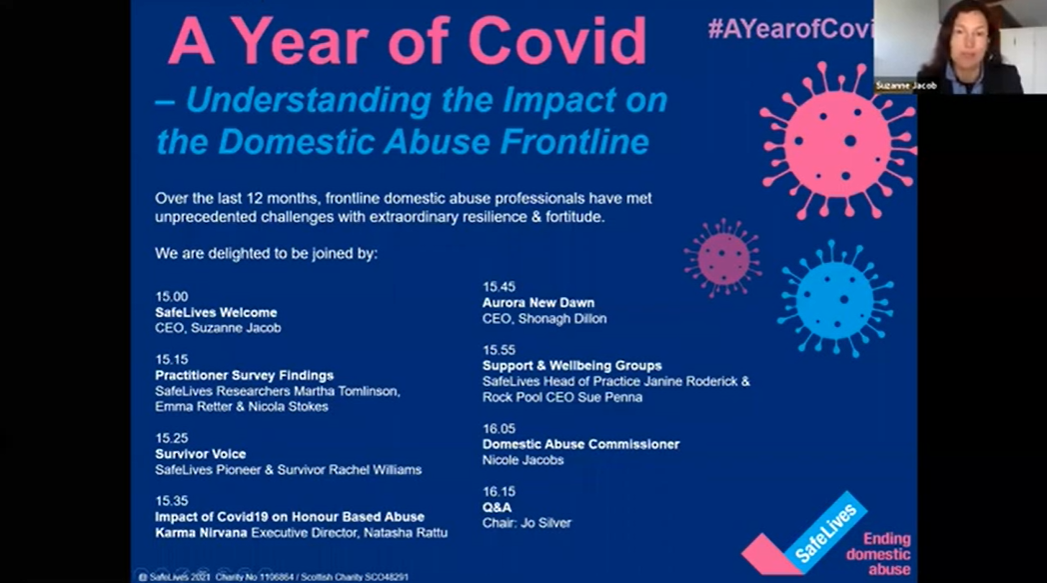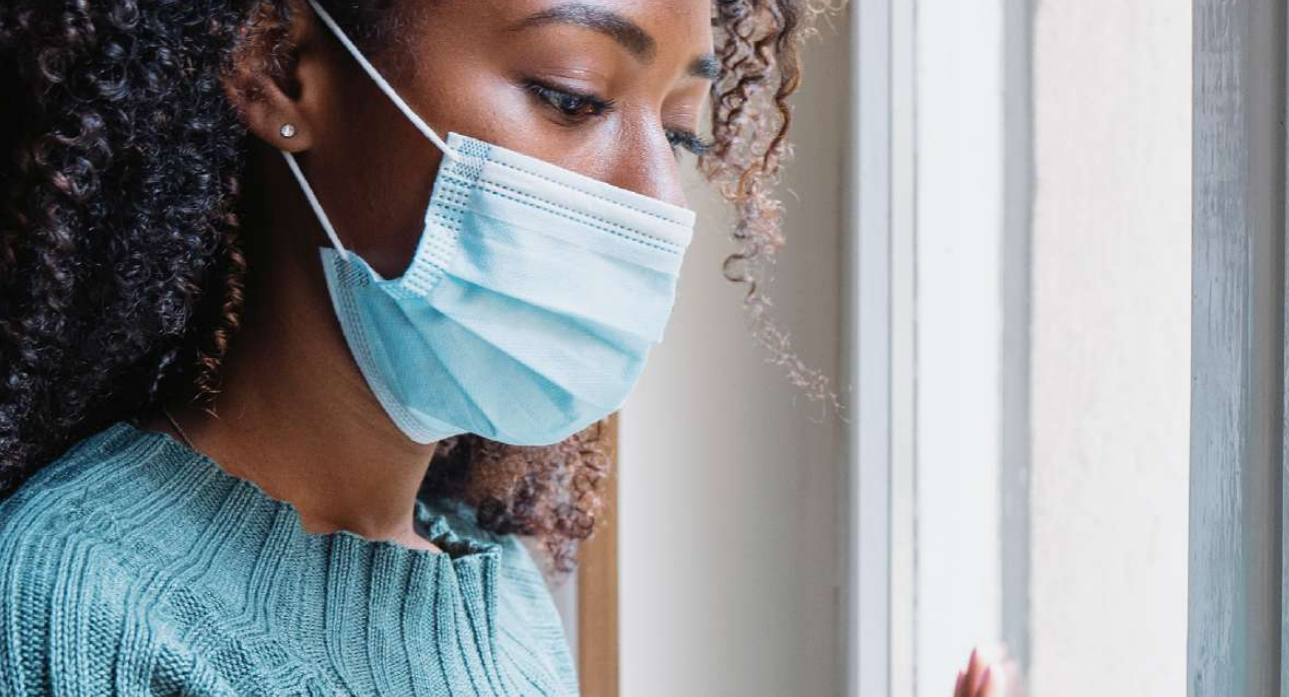The Covid-19 pandemic presented a huge and unprecedented challenge for frontline domestic abuse professionals, the sector as a whole and the victims and survivors we all support. Professionals faced these challenges with extraordinary resilience and fortitude, but the pressure was immense and the impact was widely felt.
In April 2020 we launched our #ReachIn campaign, which encourages people to reach in and start a conversation if they are worried someone they know is experiencing domestic abuse. As the pandemic continued and lockdowns became a way of life, our Pioneers conceived the ‘Ask for ANI’ codeword scheme, to help victims ask for help safely and discretely during Covid restrictions.
Find out more about these initiatives and everything we achieved together in the first year of Covid-19 below.
Suzanne Jacob, former SafeLives CEO, SafeLives Impact Report 2020-21There were hard days and harder days. But survivors of domestic abuse never give up, and those who have turned their experience into activism never stopped for a second in 2020/21. It's their resilience, energy and determination, even in the very toughest circumstances, which keeps a fire lit for all us in doing this work.




